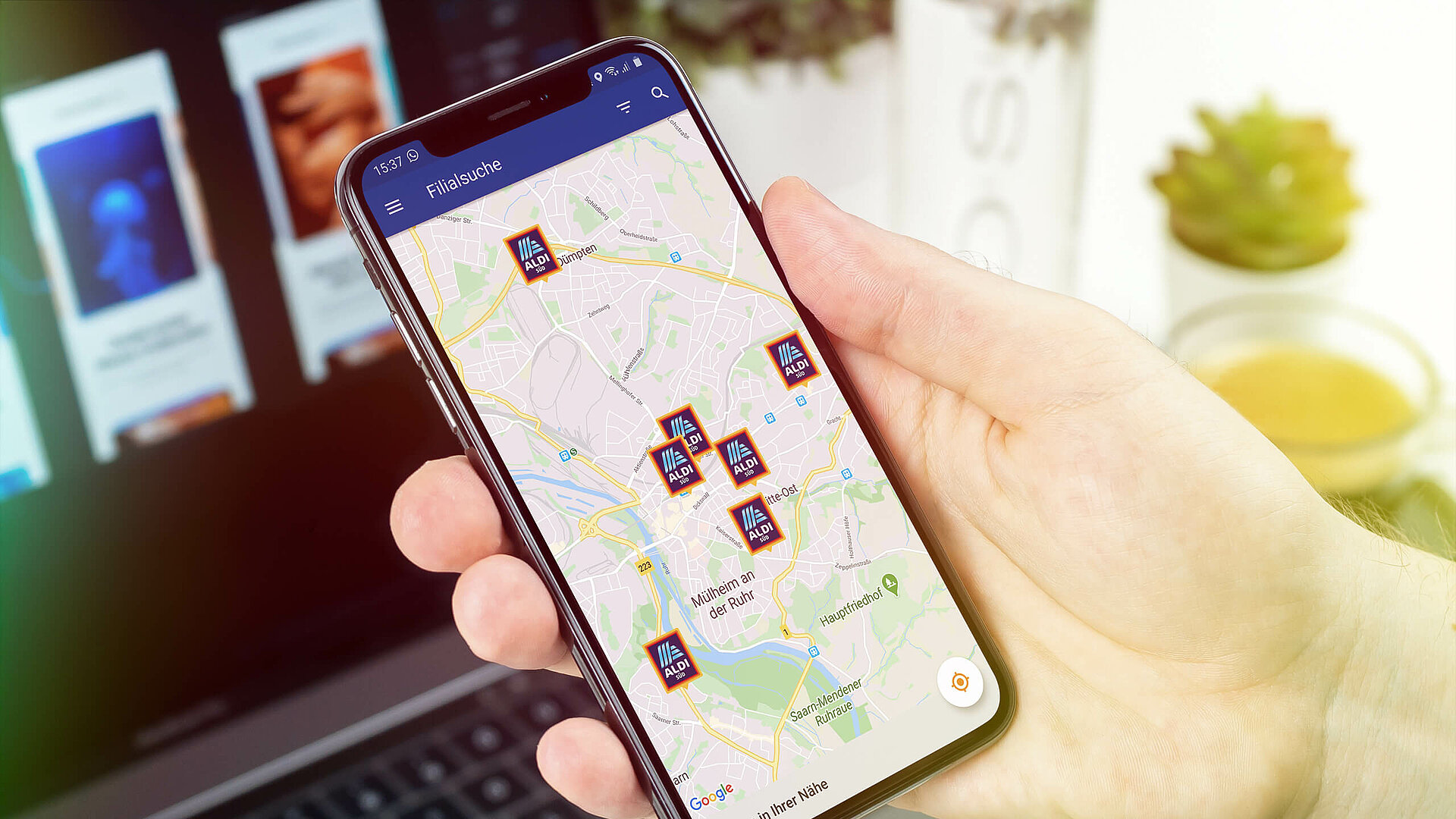
How ALDI DX is approaching digital transformation in the retail industry
Modern information technology is everywhere nowadays, and it’s no different in the retail industry. Only those who recognise this potential can grow in the long term – and give their customers a unique experience.
Our customers are not digitalising their lives because they are being forced to, but because they value the potential of seamlessly linked and personalised services. Modern IT is the backbone of internal business processes. How ALDI SÜD is taking on the business trends of the future:
Modelling international supply chains
Modern logistics networks are becoming more complex and often stretch over multiple continents. In every supply chain, there are hundreds of different routes that a product can take. Here, there are a number of different variables, such as modes of transport, order quantities, container types, production facilities, packaging options, shipping ports, distribution centres or logistics companies that can have very different effects on cost, quality, service, sustainability and implied risks depending on their combination.
Correctly modelling and optimising the supply chain is a growing challenge. Advanced algorithms and software solutions are used to define transport routes, combine the variables in an optimal way, put existing routing strategies to the test, design strategic networks and define ideal hubs. For ALDI SÜD, this represents a way to effectively minimise costs and risks and at the same time improve service, quality and sustainability.
Economical route planning vs flexible customer demands
The online retail industry is booming. In Germany, almost three billion packages are currently delivered each year, and the numbers are rising – a logistical feat when taking into account the traffic chaos in inner cities. Nevertheless, every third customer is unsatisfied with their delivery service. For the companies who make deliveries, this last mile is an enormous challenge. Economical route planning, minimising delivery costs, quality of life in the city, ecological sustainability and maximum customer requirements concerning speed, accuracy and flexibility require a new delivery concept. Customers want to decide for themselves when and where packages are delivered, sometimes straight away and increasingly with a repeat ordering subscription, of course all while having the freedom to decide their own time intervals between deliveries.
They also expect a smooth and uncomplicated process. City hubs, delivery robots, drones and smart micro networks are being researched around the world and may provide solutions. It is clear that there is no single company that can currently solve all of these challenges. Politics, logistics companies and retailers across different sectors must be on the same page and work together to sustainably revolutionise current delivery processes. Data sharing between companies and jointly optimised algorithms form the foundation of digital collaboration platforms.
Synchronised touchpoints: top service across all channels
In the last few years, there has been a fundamental change in the way our customers shop. They no longer shop just in stores, but also in online stores, using smartphone apps, social media channels, digital brochures and advertisements. The challenge lies in linking all of these online and offline customer channels with each other. Only then can we create a consistent shopping experience that gives customers a good feeling throughout the process – before, during and after. An important requirement when establishing these channels is an unconditional focus on the customer. Every service and every touchpoint must be optimally linked with each other, whether online or offline, and must provide the same quality and user friendliness. ALDI SÜD is here for everyone and wants to provide every single customer with an individual and sustainable shopping experience across all channels, regardless of the target group.
Customer expectation: the “wow” effect instead of the weekly shop
Thanks to networked technology and new data analysis possibilities, the focus is moving away from products and towards customers. The buzz term “customer centricity” puts customer wishes and demands at the centre of all business models. For the customer, synchronised channels and data analytics offer a sustainable shopping experience. For us, they make it possible to better anticipate customer wishes and demands and to shape our product range to match this – before the customer even has to ask.
Customer centricity also means meeting the changing expectations of customers and remaining true to our ALDI discount principle. After all, our customers want to continue to be able to buy good-quality, low-price products, but they also want an experience. More and more, they are looking for inspiration in their daily life. To address this, we need a digital infrastructure that is geared towards the individual needs of our customer-tailored services, brings inspiration and stories together to form a digital experience, and is linked to real stores. Only in doing so can we achieve the “wow effect” that will encourage our customers to remain loyal to us in the long term and allow us to bring our ALDI principle to the digital world in a cost-efficient way.
We are keeping a close eye on all of these trends. If you are ready to shape digital infrastructure in the retail industry of the future and be part of exciting digitalisation projects, head here for our vacancies.

